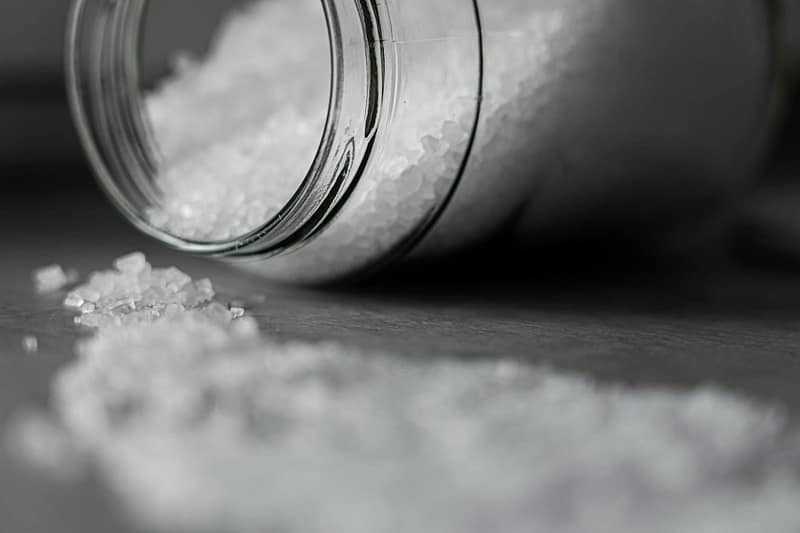Listen. I love salt. Salt is the friend who always shows up, always flatters, and occasionally tries to kill you via hypertension. But pepper? Pepper is your chaotic ex who still makes your heart race when they walk into a room. Mysterious. Spicy. Full of emotional damage. And also just like your ex, you invited it back into your life every single day.
It’s time we talked about pepper. The ancient diva of the spice rack. The original ✨flavor influencer✨. The reason your pasta doesn’t taste like wet paper towels.

🌱 Origins: Pepper Was Born to Be Extra
First off, black pepper is not a seed. It’s a dried fruit. A tiny, shriveled, dramatic little berry from the Piper nigrum vine, which is native to the Malabar Coast of India (aka modern-day Kerala, aka the same place your favorite coconut curry probably came from. Coincidence? I think not).
It grows like a vine with boundary issues, climbing trees and producing bunches of small green berries. Once picked and dried, they transform into those familiar wrinkled black spheres that have been emotionally dominating our taste buds for millennia.
If that sounds sexy, it’s because it is.

📜 A History of Obsession, Theft, and Spicy Drama
People have been obsessed with pepper since literally 2000 BCE. Ancient Indian Ayurvedic texts praised its digestive powers. Roman cooks were flinging it into everything from lentils to wine. And yes, when the Visigoths sacked Rome in 410 CE, they demanded 3,000 pounds of pepper as part of the ransom.
Because that’s how valuable it was. Pepper was so rare and revered that it was used like currency. Rent? Paid in pepper. Trade deals? Sealed with pepper. Marriages? Probably spiced with pepper and dowries of livestock.
Fast forward to the Middle Ages, and Europeans were jonesing for pepper like it was the medieval equivalent of espresso. Venice controlled the pepper trade, and that monopoly helped fund the Renaissance (yes, really). By the 15th century, countries were literally sailing across oceans and accidentally “discovering” continents just to secure their own pepper hookup.
So next time you casually grind pepper on your eggs? Just know: empires were built and blood was spilled for that brunch seasoning.

🍴 Uses: The Original Overachiever
Let’s talk applications, shall we?
Culinary:
- Black pepper: The Beyoncé of the spice world. Bold, sharp, spicy. Appears in literally everything.
- White pepper: Milder, funkier, and slightly fermented. Often shows up in French sauces or Thai soups like it owns the place.
- Green peppercorns: Unripe and soft. Fresh, slightly vegetal. Kind of like black pepper’s cottagecore cousin.
- Pink peppercorns: Technically not pepper. Still invited to the party. Looks cute on cheese boards.
Medicinal:
Pepper wasn’t just flavor, it was medicine. In traditional Indian and Chinese medicine, it was used to help with digestion, colds, respiratory issues, and even as a metabolism booster. Modern research confirms that piperine, the active compound in black pepper, has anti-inflammatory, antioxidant, and antimicrobial properties.
Fun Biohack Alert: Piperine also boosts nutrient absorption, especially curcumin from turmeric, which is why your golden milk latte needs a little crack of pepper to be anything other than an expensive placebo.

📉 Pros and Cons — Because Balance Is Important
| Pros | Cons |
|---|---|
| Adds depth and bite to nearly any dish | Can overpower delicate flavors |
| Helps with digestion and bioavailability | Pre-ground pepper = expired sadness dust |
| Packed with antioxidants and good vibes | Piperine can be irritating for some guts (hi IBS friends) 6 |
| Universally available and dirt cheap | Can trigger coughing fits so violent you see your ancestors |
| Makes you look like a Serious Home Chef™ | Fresh grinding can cause emotional exhaustion if the grinder sucks |

🧪 Science Corner: What Even Is Piperine?
Piperine is the alkaloid responsible for pepper’s pungency. It stimulates TRPV1 receptors in your mouth which are the same ones activated by chili peppers, wasabi, and emotional trauma. But unlike capsaicin, piperine isn’t really “hot,” just… biting. Like your sarcastic friend who always looks amazing in red.
Researchers are studying piperine for its effects on:
- Inflammation
- Brain health
- Drug absorption
- Gut microbiota
- Even potential anti-cancer effects (!!!)
Let’s be clear: pepper is not a miracle drug. But it’s spicy, sexy, and scientifically interesting. And that’s more than I can say for 90% of the food I ate in college.

✨ Final Thoughts: Pepper Is the Main Character
Pepper didn’t come to play. It came to flavor, to dominate, to conquer. From ancient Indian villages to medieval spice routes to the side of your scrambled eggs, it’s been the moment for over 4,000 years and it’s still trending.
So the next time someone calls pepper “basic,” just remind them: basic doesn’t start wars. Pepper did. Pepper’s been out here shaking things up (literally and figuratively) since before forks were invented.
Now if you’ll excuse me, I need to go over-pepper my soup and pretend I’m a Roman empress.

📚 Further Reading:
- McCormick Science Institute. “Black Pepper.” https://www.mccormickscienceinstitute.com/resources/culinary-spices/herbs-spices/black-pepper
- Wikipedia contributors. “Black Pepper.” https://en.wikipedia.org/wiki/Black_pepper
- Mukherjee, Kamalika.“Black Pepper’s Spicy, Bloody History.” Food52. October 15, 2021. https://food52.com/blog/26669-black-pepper-history
- Stojanovic-Radic, Z., Pejcic, M., Dimitrijevic, M., et al. “Piperine-A Major Principle of Black Pepper: A Review of Its Bioactivity and Studies.” Applied Sciences, 9(20), 4270. https://www.mdpi.com/2076-3417/9/20/4270
- Shoba, G., Joy, D., Joseph, T., et al. “Influence of piperine on the pharmacokinetics of curcumin in animals and human volunteers.” Planta Medica, 64(4), 353–356. https://www.ncbi.nlm.nih.gov/pubmed/9619120












1 thought on “Pepper: The Tiny Berry That Colonized Your Taste Buds (and Also… the World)”